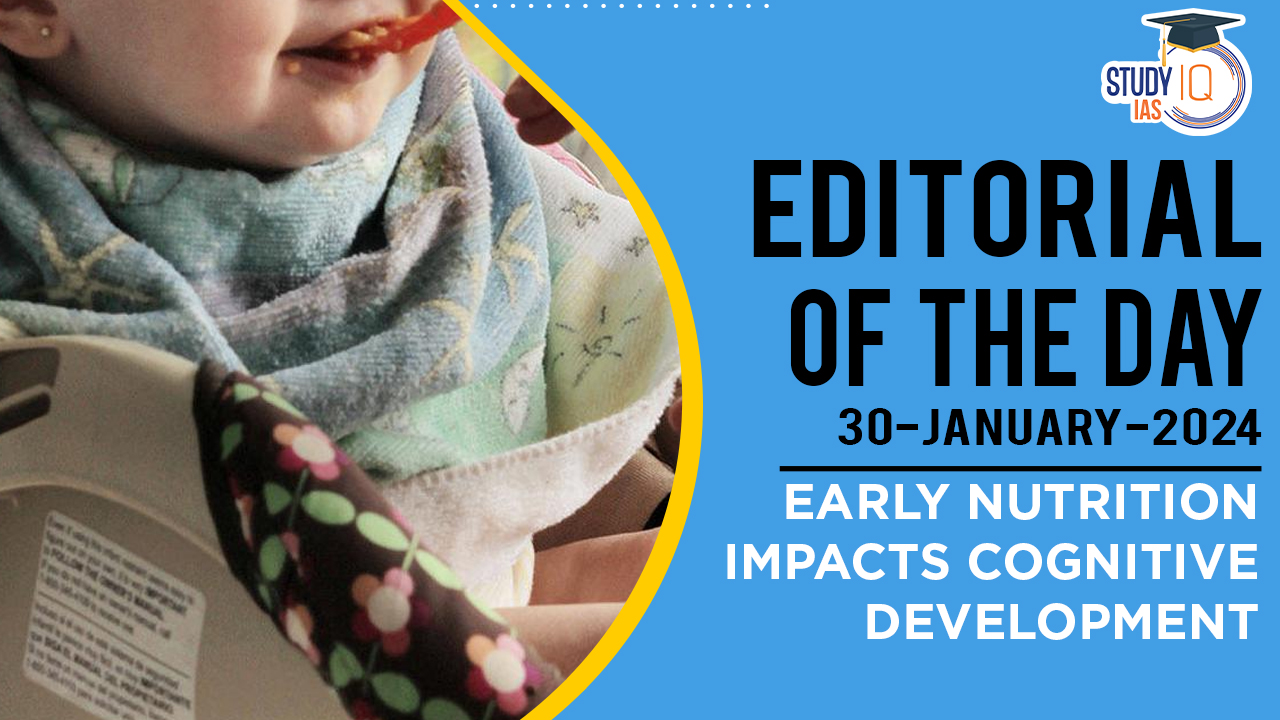Table of Contents
Context: Early nutrition has been shown to impact the development of cognitive abilities and they are not solely reliant on educational inputs.
Key Takeaways From Different Studies for Early Nutrition
- Empirical studies in India: Women’s height and education are strong predictors of child stunting, pointing to the importance of improving these factors for nutritional outcomes.
- Poshan Abhiyaan and Integrated Child Development Services in India aim to combat malnutrition and stunting through improved Anganwadi services and support for mothers and children.
- Research by Spears (2013): Better sanitation reduces diarrhoea and stunting, highlighting India’s Jal Jeevan Mission and Swachh Bharat Mission as critical investments in health infrastructure to address these issues.
We’re now on WhatsApp. Click to Join
Suggestive Measures
- Promote Early Breastfeeding: Encourage immediate and continued breastfeeding for two years, alongside appropriate complementary feeding from six months.
- Expand Government Initiatives: Scale up programs like the Mother’s Absolute Affection Programme to offer lactation support and foster breastfeeding-friendly environments.
- Leverage Mobile Technology: Use mobile technology to educate mothers on the benefits of exclusive breastfeeding during the initial six months.
- Improve Maternal Nutrition: Focus on better nutrition for mothers to ensure the birth of healthier babies.
- Diet Diversification for Children: Implement community-based programs to educate parents about enriching their child’s diet with various locally available, nutrient-dense foods after six months.
- Increase Anganwadi Staffing: Add an extra worker to each Anganwadi centre to provide better child care, education, and reduce stunting and severe malnutrition.


 Serious Fraud Investigation Office (SFIO...
Serious Fraud Investigation Office (SFIO...
 Article 142 of Indian Constitution, Sign...
Article 142 of Indian Constitution, Sign...
 Pakistan-Occupied Kashmir (PoK): History...
Pakistan-Occupied Kashmir (PoK): History...





















